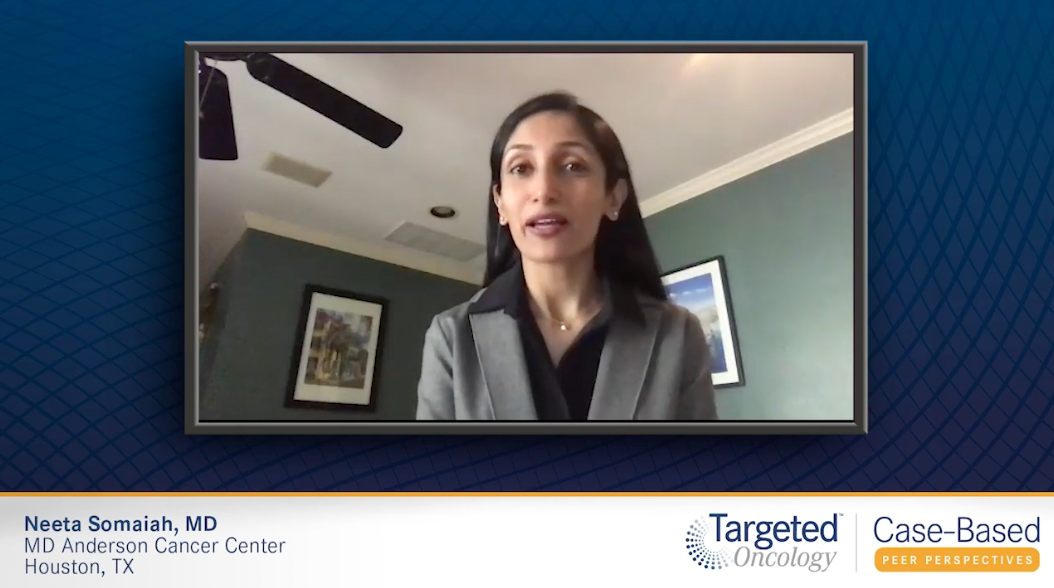Trending News on Targeted Oncology, Week of July 17, 2020
Targeted Oncology reviews trending news online for the week of July 17, 2020, including recent news from the FDA, updates in oncology, and new information regarding COVID-19.

In oncology news this week, the FDA’s Oncologic Drugs Advisory Committee voted 12-0 in favor of a belantamab mafodotin approval as treatment of patients with relapsed or refractory multiple myeloma who had received prior therapy with an immunomodulatory agent, a proteasome inhibitor, and an anti-CD38 antibody. Meanwhile, the FDA granted an Orphan Drug designation to APG-2575 for the treatment of patients with Waldenström macroglobulinemia.
The FDA also granted a Fast Track designation to enzastaurin as treatment of patients with newly diagnosed glioblastoma.
This week, the latest episode of the Targeted Oncology podcast series, Targeted Talks, was launched. In this episode, Sarah M. Temkin, MD, led a discussion with Daphne B. Stewart, MD, on the targeted therapies in ovarian cancer, whether offered in the academic or community setting.
These updates and others were trending this week
Vandetanib Remains Safe and Effective in Medullary Thyroid Cancer
Vandetanib (Caprelsa) demonstrated an improvement in progression-free survival in patients with symptomatic and progressive medullary thyroid cancer in a post-hoc analysis of the phase III ZETA trial.
The national RESPOND study is looking to determine potential underlying factors for the increased burden among African American males compared with American men of European descent and has identified novel variations among the African American population.
HER2 FISH Ratio May Predict Anti-HER2 Response Without Chemo in HER2+ Breast Cancer
The HER2/CEP17 fluorescence in situ hybridization ratio was associated with a pathologic complete response with the use of dual anti-HER2 therapy in patients with HER2-positive breast cancer without the use of chemotherapy, suggesting that FISH may be a predictive biomarker of anti-HER2 response.
Pyrotinib Induces Antitumor Activity in HER2-Positive Non-Small Cell Lung Cancer
Pyrotinib had promising antitumor activity as treatment of patients with HER2-positive non–small cell lung cancer (NSCLC) and demonstrated an acceptable safety profile.
177Lu-PSMA Appears Feasible Following Ra-223 in Metastatic Castration-Resistant Prostate Cancer
In an interview with Targeted Oncology, A. Oliver Sartor, MD, discussed the findings for subsequent 177Lu-PSMA following Radium-223 as treatment of patients with metastatic castration-resistant prostate cancer, as well as the next steps for this research.
Case-Based Peer Perspectives: Case of A 68-Year-Old Man With Gastrointestinal Stromal Tumor
Neeta Somaiah, MD, reviews the case of a 68-year-old man with gastrointestinal stromal tumor in this episode of Targeted Oncology’s Case-Based Peer Perspectives series.
CAR T-Cell Therapy Evolves in Leukemia Treatment Landscape
Jae H. Park, MD, discusses the role of chimeric antigen receptor (CAR) T-cell therapy in leukemias and how he sees this treatment evolving in the coming years.
Special Feature: COVID-19 Update

Researchers Release Alternative Treatment Strategies During COVID-19 for NSCLC
A nationwide team of clinical investigators, including oncologists from Fox Chase Cancer Center, MD Anderson Cancer Center, Johns Hopkins University, and other institutions teamed up to explore options on how to manage patients with locally advanced NSCLC in a multidisciplinary setting during the ongoing pandemic of COVID-19.
Duvelisib May Reduce Lung Inflammation in Patients With COVID-19
Duvelisib (Copiktra), an anticancer drug, is currently being explored as treatment to reduce lung inflammation in hospitalized patients with COVID-19 in an investigator-initiated phase 2 study.
Precision Medicine Will Drive New Standards of Care in the Post–COVID-19 World
Once the impact of COVID-19 begins to minimize and activities settle into a “new normal,” efforts to expand precision medicine across many diseases will resume, says Jen Buhay, PhD.

